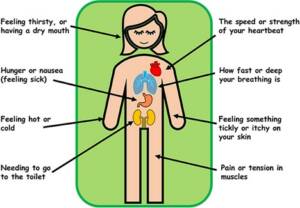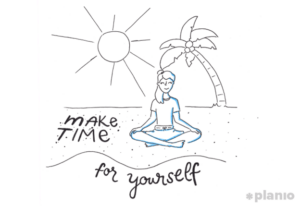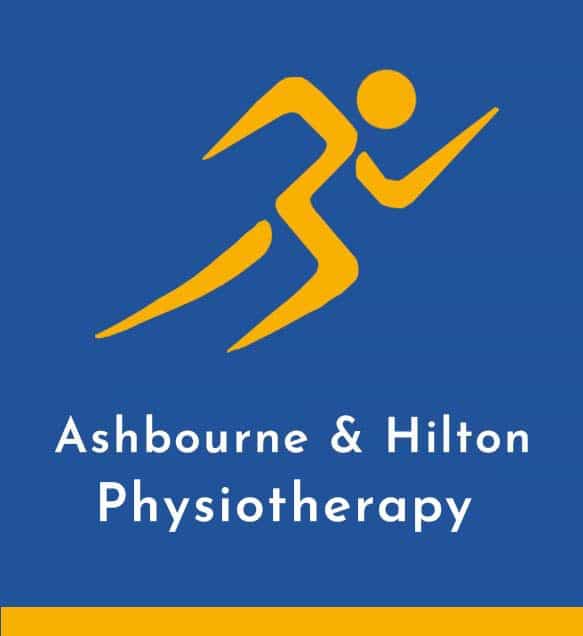The Art of Balancing Life for Wellbeing and Recovery
It is normal for people’s activity to eb and flow. You probably notice periods in your activity when you seem to progress and burn through your list of things to do, and other times when nothing ever seems to get done. When the peaks and troughs become too extreme a boom and bust pattern appears, this limits us functionally and can get out of control.
We may have plans to do something, but we find ourselves without the resources to do it when the time comes. I see this pattern develop in my patients, particularly when they are managing more long standing complaints that require more consistent behaviour and habits. I see this pattern develop in my daily life when I am trying to introduce habits or behaviours more consistently for my own health. In this modern world it is easy to overwhelm your central nervous system with constant stimulation from work, family, screens and hobbies. When bust kicks in it stops you being consistent with all those little things you want to do regularly.
Image credit: www.buzzfeed.com
We all have ceilings, whether they are emotional, physical or cognitive. The body has an amazing ability to push through limitations in a time of need, but this super power comes at a cost. That cost must be paid, a super power doesn’t come for free. Our central nervous system needs time to recover when it has been utilised, it cannot remain at full capacity for long periods of time. Striving to be the super version of yourself all the time is not realistic, but I think we are all guilty of it to a degree. The key to a successful balance lies in the sweet spot in between. Pushing yourself is very important to help you grow as an individual, but without allowing periods of time to recover and regroup you will never move forwards.
Image credit: www.listverse.com
What does this mean in reality? I think it means you need to be at peace with your limitations and accept the reality of your current situation. I think it means you need to develop skills in interoception, this is a sense of recognising cues from your body. I also think it means considering yourself when planning your time and activities. Let’s discuss each of these in a bit more detail.
Image credit: www.headspace.com
Being at peace with your limitations and accepting the reality of your current situation. I see the opposite of this in my clinical practice a lot. Sometimes people are unable to accept they can do less as they get older, or after an injury or illness. This causes them to be unrealistic in their expectations. When I challenge a patient who is doing too much, they often justify behaviours by saying they refuse to give up.
I think there is a big difference between accepting and giving up. You can accept your current situation and still have belief that things will be better in the future. The difference is hope. If you are unhappy with your current situation then change it, but you need to recognise and face the position you are in now, before you can make the journey forward. I also think you should challenge thoughts of wanting to go back; back to how I was when I was younger, back to how I was before my injury, back to who I was before a certain event. Time and experience shape’s us into new things we can never truly go back to what we were before. It is more realistic and more fulfilling to consider growing into the future and looking forward.

Image credit: www.frontiers.org
Interoception encompasses a lot of different skills including recognising when we are thirsty, hungry or tired. Our bodies need the basics covered to maintain homeostasis: food, water, sleep, temperature regulation. When the fight or flight system kicks in, our brains tune out of these internal cues so they can react to the world around them quicker. How often have you gone through a busy day and forgotten to drink and then got a headache at the end of the day? How often have you been too busy to pop to the toilet and then find yourself desperate later on? How often have you ignored your pain during the day and then paid for it later or at night time? Constantly being stressed leads to burn out. You might suffer from fatigue, headaches, pain or be prone to infections and illness. When we live stressful lives, we really need to reconnect with our parasympathetic nervous system. This puts the breaks in the cascade of chemical reactions in our fight or flight response. This can be done in a variety of ways like meditation, breath control, conscious movement, cold showers and walking in nature. Make sure you have some of these activities in your life. Calming the nervous system and connecting with your body more will help turn up the volume on the cues your body is giving you for homeostasis. This will help you lead a healthier life.

Image credit: www.planio.com
The last concept I wanted to include is considering yourself when planning your activity. In my clinical experience, people who suffer more with persistent pain are selfless. When you are a caring person who prioritises the needs of others above your own, it becomes second nature to sell yourself short. If you never meet your own needs this will eventually catch up with you. I am not suggesting we all turn into selfish individuals who just do what we please and damn the consequences. Serving and caring for other people is a very noble and beautiful trait.
But if you don’t make time to look after yourself eventually you will not be able to meet the needs of others. I suggest making time for something that brings you joy. Something just for you. Imagine yourself happy and content, what are you doing? If you have spent so much time looking after others you don’t know what this is, try new things till you find out. I also suggest making time for rest and recuperation. If you have a period of intense activity; training for an event, doing an exam, moving house, completing a big project at work. Make sure you schedule the down time after, book a holiday or time off to recover. Clear a short period of time with no focus or direction and just be.
I feel the slight guilt of hypocrisy writing this. I am prone to working too hard, not drinking enough water, I have experienced burnout and suffered the physical and emotional fall out of excessive amounts of stress. But I will continue to try and do better and strive for more balance. I will
continue to talk to patients about their lifestyle if it is a barrier to their recovery.
Think about how these themes appear in your life and what you can do better. You will be better for it. Also remember it is like gardening or housekeeping, it’s never really finished.
Lucy Langford
BSc (Hons) Human Biology & BSc (Hons) Physiotherapy, MCSP, Registered with the Health & Care Professions Council
#ashbournephysiotherapycentre #ashbournephysio #ashbourne #hiltonphysiotherapycentre #hiltonphysio #wellbeing #recovery #physio #physiotherapy #cognitivetherapy #neuro #neurotherapy #accident #injury #rehab #rehabilitation







